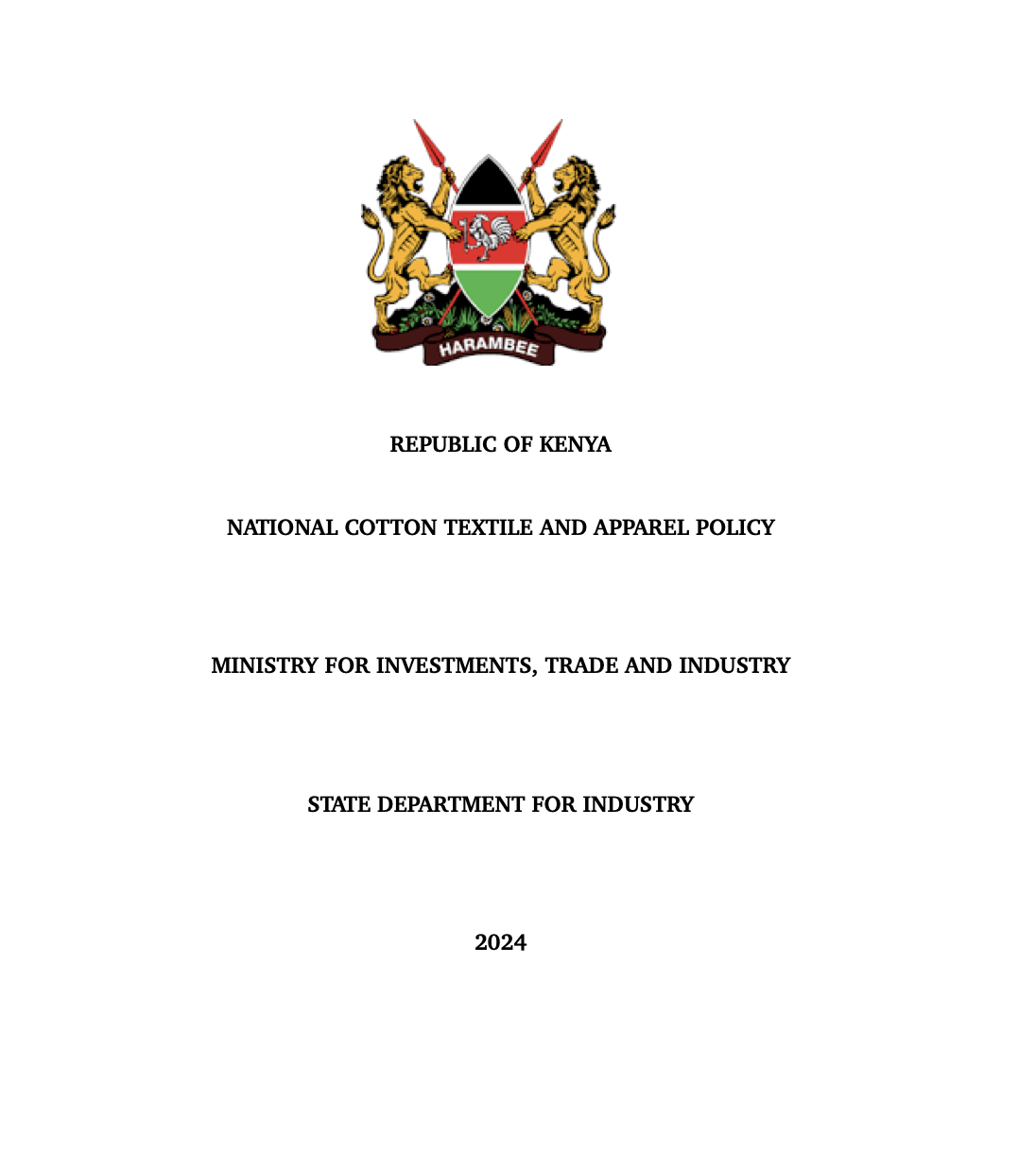National Cotton Textile and Apparel Policy
Prepared By Ministry for Investments, Trade and Industry- State Department for Industry - 2024As conceived, the policy is hinged on transformation of the sector through expansion of the ability to sustainably produce and process cotton into high value fabrics while simultaneously creating jobs, expanding export volumes and significantly boosting the manufacturing share of our GDP.
Cotton is a strategic crop under MTP IV of Kenya’s Vision 2030 and a priority value chain under the Bottom-Up Economic Transformation Agenda.
The government of Kenya reaffirms its commitment to the revival of the CTA sector through strategic investments across the value chain. Initiatives such as distribution of high-quality cotton seeds to farmers, modernization and upgrading of ginneries and textile mills, upskilling of textile clusters and setting a minimum guarantee price for cotton lint to catalyze growth in the sector. These efforts are supplemented by public private partnerships, foreign direct investments and export-oriented manufacturing through our Special Economic Zones.
Moreover, the policy takes into account environmental externalities and the adverse impacts of climate change and variability. Pollutants emanating from industrial and trade activities in the sector such as greenhouse gases, chemical pollutants and textile waste often end up degrading our environment and polluting our water bodies. This policy integrates sustainability principles throughout the value chain by embracing circularity, green manufacturing, climate-smart farming and low-carbon emissions. It is my firm belief that the Implementation of these targeted interventions will significantly contribute towards attaining Kenya’s Nationally Determined Contribution (NDC) under the UN Framework Convention on Climate Change, to reduce GHG emissions by 32% by the year 2030.
The government of Kenya reaffirms its commitment to the revival of the CTA sector through strategic investments across the value chain. Initiatives such as distribution of high-quality cotton seeds to farmers, modernization and upgrading of ginneries and textile mills, upskilling of textile clusters and setting a minimum guarantee price for cotton lint to catalyze growth in the sector. These efforts are supplemented by public private partnerships, foreign direct investments and export-oriented manufacturing through our Special Economic Zones.
Moreover, the policy takes into account environmental externalities and the adverse impacts of climate change and variability. Pollutants emanating from industrial and trade activities in the sector such as greenhouse gases, chemical pollutants and textile waste often end up degrading our environment and polluting our water bodies. This policy integrates sustainability principles throughout the value chain by embracing circularity, green manufacturing, climate-smart farming and low-carbon emissions. It is my firm belief that the Implementation of these targeted interventions will significantly contribute towards attaining Kenya’s Nationally Determined Contribution (NDC) under the UN Framework Convention on Climate Change, to reduce GHG emissions by 32% by the year 2030.
Document





